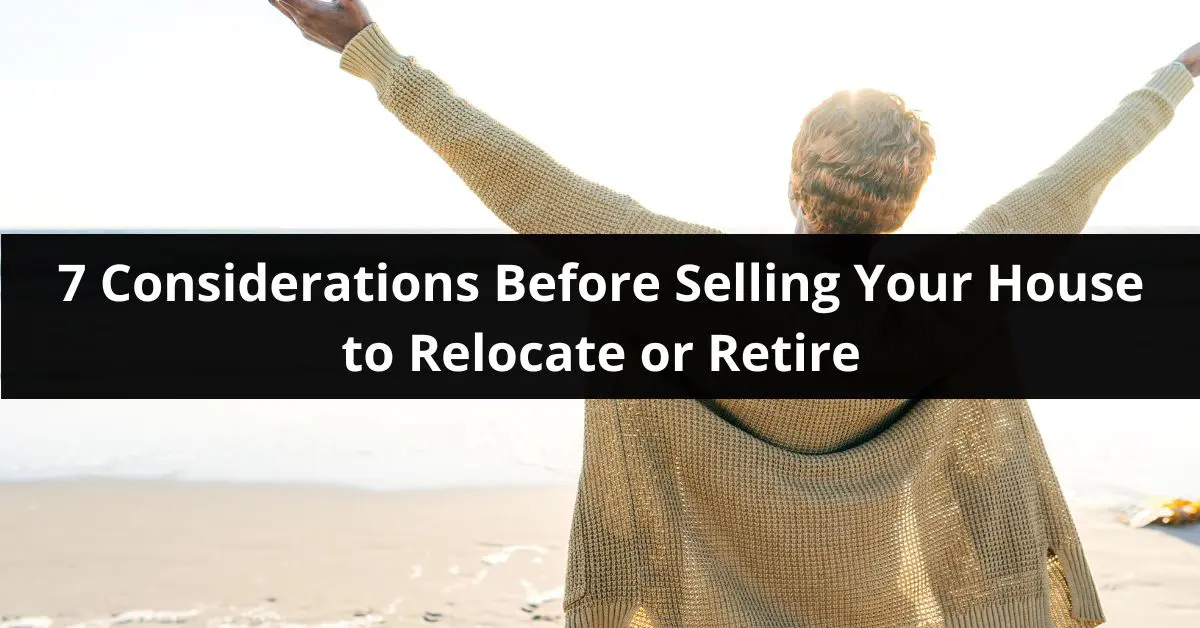Selling your house because you’re relocating to assisted living, or moving to a retirement community does not have to be stressful. When you have the right plan in place, you make the process seamless and “move” into your new life more easily. The same goes if you’re helping an aging parent going to assisted living.
The secret to a seamless transition is being prepared. There are seven things to consider or do before you sell your house and go into assisted living, retirement communities, or to hospice.
- Find a place to live
- Make sure you have time to get affairs in order
- Turn off all accounts in your name
- Update your information including financial
- Check your will and testament
- Separate your belongings
- Begin building relationships before you move
Find a Place to Live
Once you’ve signed your home and the deal is official, you will need to move out. If you don’t have a place to move into, you will be on the street. This is why it is important to only sell your house on your terms, and to make sure the buyer is legit.
If you sell to a legit we buy houses company like ours, you’ll have the freedom to set a move out date. If you choose to use a real estate agent because you don’t mind paying commissions and are not in a rush, then they’ll be able to help you with advice on finding a new home, or negotiate a reasonable move out date with the buyer. The scam companies and bad agents will pick the date for you, and encourage you to move out sooner than you’re ready.
If you are not in financial trouble, and you need some extra time, good agents and real estate investors will allow you to move once you have a plan in place. Now you do have to be reasonable, you cannot request a year, but many will allow for a month to get your affairs in order.
Have Your Affairs in Order
Having your affairs in order means turning off utilities in your name, updating contact information and deliveries, and also turning off accounts you won’t use anymore. That could be cable tv, phone numbers, and making sure family and friends know where you are moving too.
You’re also going to want to update subscriptions you receive, as well as delivery information for medications and services you depend on. Go through your credit card statements for the past few months, and look at the bills you pay. This is a great way to begin creating a list of companies, people and services you’ll need to contact before you sell. As each one is taken care of, check it off your list.
Turn Off All Accounts in Your Name
By turning off static accounts, accounts that require a physical address, listed in your name you protect yourself from falling into debt and unexpected bills from popping up. If you don’t do this and the new owners are using services in your name, and they don’t pay, it could wind up getting reported to the credit bureaus and your credit score may fall.
Make sure you contact:
- Utilities
- Entertainment companies – cable, landline phone, internet
- Physical subscriptions – local newspapers, food delivery
Update Your Information
Now you want to update your information for non-static accounts. This way you don’t miss packages and can keep enjoying services you love. And the same goes for financial institutions and service providers so you don’t miss a bill.
- Subscription services you belong to include like cooking and pet food, and transfer cable and streaming subscriptions
- Products you want to continue to use or receive like national newspapers, magazines, and cell phone carriers
- Delivery addresses including USPS, FedEx, and retailers you shop with that use click to purchase in apps like Amazon
Check Your Will and Testament
Nobody likes to think about dying, just like we don’t like to think about what happens after. If you’re selling your house because you’re moving to a new state, that state may need your will to be amended if you’d like it to remain in tact. If your will, testament and trust are not recognized by your new state, your family and heirs may run into problems after you pass.
Talk to a licensed probate or estate attorney in the state you’re moving to, or where you currently live if they’re familiar with your new state, and ask them if you have to change anything. Your family and friends will be mourning you, and this is one step you can take to cause less stress once the inevitable happens.
Separate Your Belongings
One of the hardest parts of downsizing or moving to a retirement community is not having the same amount of space. You likely cannot take everything with you, but you don’t have to forget the most important items like family heirlooms and important furniture.
Find the exact dimensions of your new home and have them drawn out. Next, separate the things you love most into categories. Now see if they fit spatially into your new home. By being creative with layouts like putting a bed against a wall, or using angles vs. everything aligned you may be able to take more of your cherished memories with you.
If it turns out you have to leave some things behind, see if your family or friends want them. Having your favorite possessions with your favorite people is better than having to toss them out or sell them to strangers. And if you visit the person, you can visit your favorite things for a bonus win. You could always put them in a storage locker, but that is an added expense and they won’t do anyone good closed off to the world.
Begin Building Relationships
Moving and not knowing anyone is scary, but with the internet and social media you don’t have to start off alone. Almost every community has a web presence and active community group online. You can join and begin socializing with community residents.
Many times you can sign up for clubs, begin networking with new neighbors, and discover the best restaurants and activities in your area. By doing this you can arrive with people ready to welcome you, a sense of belonging, and fun things to do. It can be scary to move, but it can be exciting if you set yourself up for a warm arrival.
Moving for retirement, to downsize, or for assisted living doesn’t have to be difficult. And if you want to talk to a professional home buyer that helps people in your situation daily, give us a call at . We can answer your questions, and if you decide you want to sell your house to us, we can work on getting you a no-obligation and hassle-free quote.


